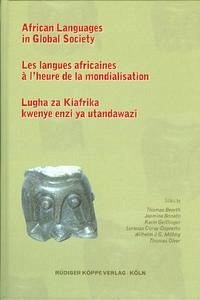Nicht lieferbar

African Languages in Global Society / Les langues africaines à l’heure de la mondialisation / Lugha za Kiafrika kwenye enzi ya utandawazi - Papers read at the Symposium “Text in Context: African Languages between Orality and Scripturality” / Communication
Versandkostenfrei!
Nicht lieferbar
African Languages in Global Society / Les langues africaines à l’heure de la mondialisation / Lugha za Kiafrika kwenye enzi ya utandawazi - Papers read at the Symposium “Text in Context: African Languages between Orality and Scripturality” / Communication



